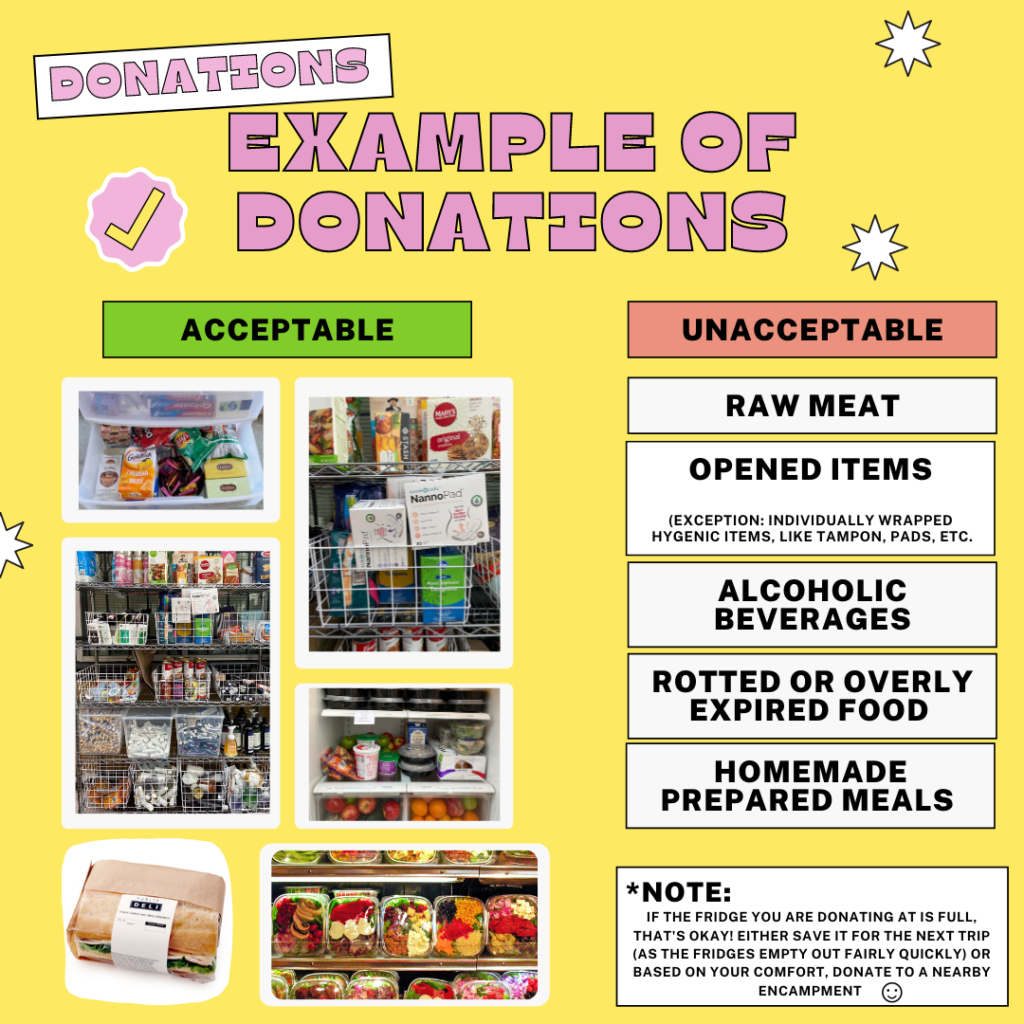Denver’s Northside welcomed new neighbors recently: two vibrantly painted public refrigerators. You can meet them filled most days with an assortment of fruits, vegetables, maybe a gallon of milk. The fridges, organized by Denver Community Fridge, provide a connecting-point between people running short on food and those who can offer a little extra.
How does it work? Give what you can, take what you need. For organizers, it’s simple: when you take a step back and look across the entire community, there is actually enough (even plenty) for everyone.
“We’re making each other’s lives a little easier on many levels” says Eli Zain, Denver Community Fridge founder. The fridges are outdoors and available 24 hours a day, 7 days a week.

North Denver’s fridges can be found in Berkeley at West 44th Ave and Yates Street (in front of Amethyst Coffee) and in Sunnyside at West 43rd Ave and Pecos Street (next to Huckleberry Roasters). Each comes with a small pantry for dry goods.
Organizers lean on Instagram (@denvercommunityfridge), volunteers, and conscientious passers-by to get word out when shelves are running low. Responses are generally immediate, “Heading over there to drop off some stuff right now!”
Neighbors can join the effort by, as they say, giving what you can and taking what you need. If you have an extra minute, help organize or wipe down a shelf. If you have a little extra cash, put “fridge item” on your grocery list and get one extra of something you like.
Zain encourages people to think about the person who will be making a meal out of items you leave. Donate a spice you like or items that go well together.
A post one recent Saturday morning in the Facebook Group “Help Needed in Denver Metro COVID-19” pictured a changing table weighed down with baby supplies. It read, “Anyone need a changing table and any items on it. Need picked up by tomorrow before 6p. Blankets included.” Within an hour, 19 raised-hands filled the comments. The items were spoken for in the first 5 minutes.
The group launched last March as Coloradans were ordered to stay home and restaurants and most retail outlets closed. The state unemployment rate climbed from 2.5% to over 12% by April. The group now has over 13,000 members.
Jennifer and Kane Lisiecki had no idea what the group was about to become when they launched it, initially as an outlet for friends to share about their needs. Overnight there were 500 members, the next day 600. Page administrators jumped into action attempting to take care of requests. At about the time it became overwhelming, they began noticing members of the group–strangers to one another–pitching in to help each other out.

Now, people who join are encouraged to review its guidelines and, when posting, include their general location and specific details around what they need or what they can offer (if diapers, for example, note what size).
The Lisieckis live in Athmar Park, where Jennifer grew up and where her grandparents lived. Denver has changed a lot since then, but the group reminds Jennifer that people really do still care. COVID-19 has certainly revealed broken systems, she says, but watching people so readily lend a hand makes Denver feel like a small town again.
Projects like these meet important needs yet fall short at times. A gap appears in the space between posts with free food caveats like “porch pick-up” or “must pick-up tonight” and replies like “can’t get there ‘til Friday” or “not mobile.”
Enter people like Cat Coyne. Coyne joined the group a few months ago and not long after noticed this gap. She was also seeing community fridges pop up around town. “I’m one person,” she says, “I can’t do a whole lot. But I do have a car.” Coyne now posts an offer like this every week or two: “Any non-mobile people needing food? I can deliver to 5 people later this evening. Please PM me!” And shortly after, “I’m at capacity for tonight but will be open another day!”Coyne has learned to leverage what she does have, which on some days is a few gallons of gas and 4-5 hours to visit community fridges and deliver food to people who couldn’t get to one. Kane Lisiecki echoes this idea, “It’s not how much you have to offer.”
Editor’s Note: The print edition of the paper referred to the 44th and Yates location as “in Lakeside.” That location is in the Berkeley neighborhood of Denver, not the municipality of Lakeside.

Be the first to comment